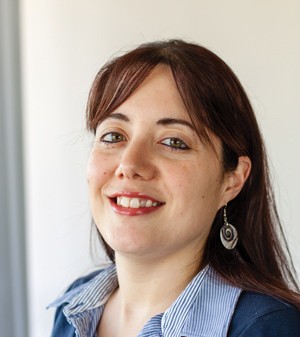The world is changing. Technologies are developing rapidly as research feeds the accelerating progress of civilisation. As a result, the job market is reacting and evolving. The question is: Are people adapting fast enough to keep up? Words by Giulia Buhagiar and Cassi Camilleri.
Mur studja ha tilħaq.’ (Study for a successful future.)
From an early age, most Maltese students are conditioned to think this way. You need a ‘proper education’ to land yourself a ‘good job’. But students graduate, and with freshly printed degrees in hand, they head into the job market only to be disappointed when the role they land seems unrelated to their degree. Yet vacancies are ready for the taking; there are many unfilled jobs in the STEM fields, which create 26% of all new vacancies according to recent research from the National Statistics Office.
So, if there are vacancies available, what is the problem? A skills gap.

Academic qualifications do not guarantee that graduates have the right skills for work. At a conference addressing the skills gap organised by the Malta University Holding Company (MUHC) and the Malta Business Bureau (MBB), Altaro Software co-founder and CEO David Vella confirmed this problem. In previous years, Altaro mostly employed experienced developers; however, increased demand led them to realise that there weren’t enough of these candidates out there for them.
To fill those roles, they extended the call to younger people, but Vella found that they were not fully equipped and ready to go. This was when he realised that they needed to change tactics. ‘Now we realise that we need to start hiring junior people and build up their skills.’ Investment needs to be made by both sides.’
What every relationship needs
Better communication between business and academia could improve the skills gap. However, this kind of engagement is easier to manage in some institutions and industries than others, and bringing those worlds together poses many challenges. At the same conference, MUHC CEO Joe Azzopardi noted how start-ups and small businesses often do not have the resources to organise such exchanges. The wall between them and students is a difficult one to get over. However, there is a new initiative seeking to remedy this situation.
Go&Learn is a project bridging education and industry through an online platform that effectively catalogues training seminars and company visits in a multitude of sectors, for students and educators alike. The initiative has garnered a slew of supporters. Sixty companies from all over the world are listed on the site, including some local names: Thought3D, ZAAR, and Contribute Water, to name a few. This year was Go&Learn’s third edition, and with 17 European regions from across 10 countries involved, it focused on the STEM fields. In Malta, the team behind Go&Learn, also a collaboration between MUHC and the MBB, have worked together to create two new programmes.
One was dedicated to ICT for business, leisure, and commodity. It saw students visit and learn from local companies Altaro, Scope, MightyBox, Trilith, and Flat Number. Students said that the visits helped them achieve a better understanding of the sector and its nuances. ‘For us students, the fact that we are exposed to the internal working of a business’s environment, it’s an eye-opener,’ said University of Malta (UM) student Maria Cutajar. The second was related to food, involving Elty food, Benna, Fifth Flavour, Da Vinci Pasticceria, and Contribute Water. In this case, the opportunity even attracted foreign students. Go&Learn is acting as a vital bridge between education and industry that can help to minimise the skills gap.
The skills gap exists for many reasons: prejudices towards certain industries, lack of information available on others, and much more. However, education can play an important part in fixing this problem.
Bringing STEM to life
The skills gap exists for many reasons: prejudices towards certain industries, lack of information available on others, and much more. However, education can play an important part in fixing this problem. Currently, local systems are falling short of reacting quickly and addressing new needs in industry. A lot of attention is placed on short-term goals such as exams and assignments, rather than the bigger picture and real-world tasks. This kind of attitude in science education tends to be exacerbated by the notion that its subjects are for ‘nerds’ and ‘brainiacs’. This can be a daunting prospect for young children who don’t see themselves as ‘smart enough’. It can drive lots of young talent away from STEM subjects.
 We need to bring fresh talent into STEM by showing how exciting, accessible, and relevant the field actually is. The solution, UM Rector Prof. Alfred Vella says, is to start right at the beginning: ‘We need to inspire teachers.’ This includes attracting the best teachers by providing appropriate salaries. Through education, we need to change the impressions given to children about science and what it means. ‘When I was younger, they used to tell me, why do you want to do science? Wouldn’t it be better to be a doctor? Engineers were seen more as grease monkeys,’ Vella said with a smile. Science should be engaging, inspiring, and fun. For this reason, he commends ESPLORA as being ‘the single most important feature in Malta.’ Vella believes classrooms should be an extension of the ESPLORA centre in their efforts to bring science to life. In addition to teachers inspiring future generations, parents also need to see STEM jobs as a good career for their children, and businesses need to show parents that exciting careers are available by pursuing STEM subjects. Without this, early encouragement might be fruitless.
We need to bring fresh talent into STEM by showing how exciting, accessible, and relevant the field actually is. The solution, UM Rector Prof. Alfred Vella says, is to start right at the beginning: ‘We need to inspire teachers.’ This includes attracting the best teachers by providing appropriate salaries. Through education, we need to change the impressions given to children about science and what it means. ‘When I was younger, they used to tell me, why do you want to do science? Wouldn’t it be better to be a doctor? Engineers were seen more as grease monkeys,’ Vella said with a smile. Science should be engaging, inspiring, and fun. For this reason, he commends ESPLORA as being ‘the single most important feature in Malta.’ Vella believes classrooms should be an extension of the ESPLORA centre in their efforts to bring science to life. In addition to teachers inspiring future generations, parents also need to see STEM jobs as a good career for their children, and businesses need to show parents that exciting careers are available by pursuing STEM subjects. Without this, early encouragement might be fruitless.
With more young people taking up STEM subjects, the potential ripple effect will be vast. These future professionals will be able to conduct more research. The enormous benefits to be reaped from having more people excited about STEM subjects means the burden does not fall solely at the feet of teachers and parents. ‘It is also the job of businesses to show the relevance and benefits of STEM,’ says the CEO of the MBB, Joe Tanti. Go&Learn is providing an arena for business to interact with students and for universities to use their influence positively.
Looking ahead
From children’s classrooms to the skills gap in our economy, everything is intertwined. We need a multi-pronged approach to tackle as many aspects as possible and implement lasting changes. For one thing, we need to take a good look at our education system and how it treats STEM subjects. We also need to bring business and education together, enabling them to communicate more effectively. With Go&Learn starting this much-needed shift, the door is open to more innovative initiatives. Who’s in?
Authors: Giulia Buhagiar and Cassi Camilleri


